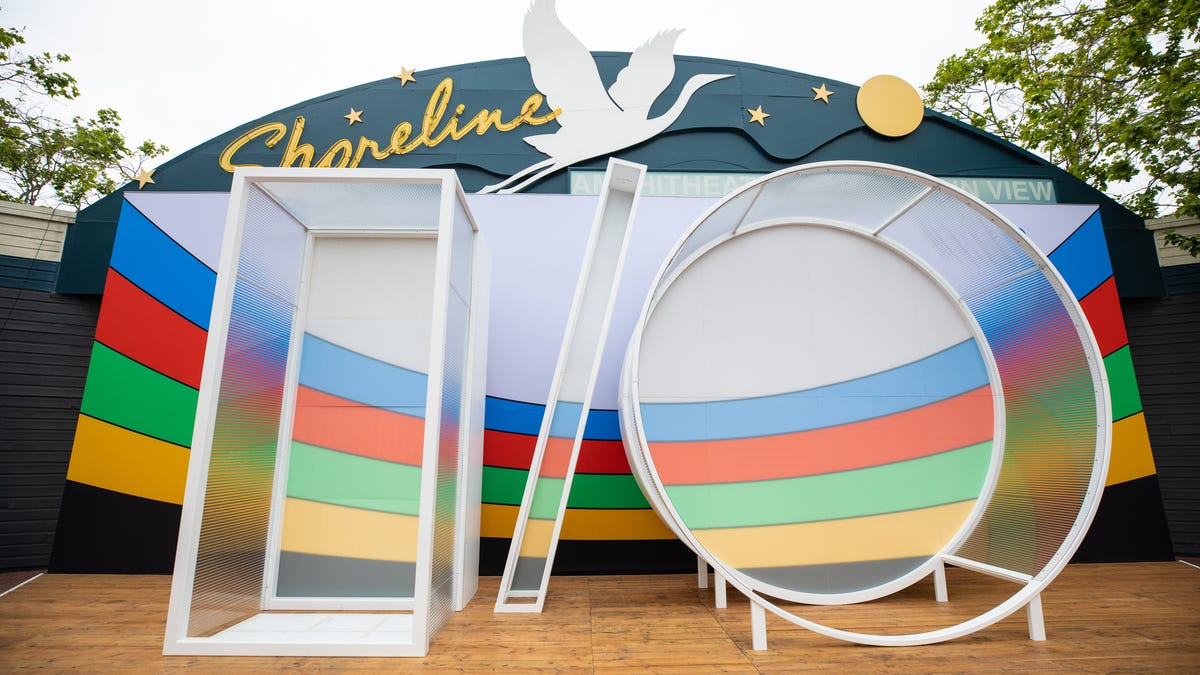Google I/O: Everything to Expect, From Android 15 and AI to the Pixel 8A
Here's what the tech giant could unveil at its May 14 event.

This year's Google I/O keynote is on May 14.
Google I/O, the tech giant's annual developers conference, is less than two weeks away, and we'll likely get a peek at Android 15, some AI updates and maybe even new Pixel devices.
It's not yet clear what exactly Google could unveil during the keynote, which is set to take place May 14 at Shoreline Amphitheater in Mountain View, California. (Following the keynote, there will be developer breakout sessions on May 14 and 15.) Last year, the company debuted the Pixel Fold and Pixel 7A, as well as features like Magic Editor in Photos and Immersive View for Maps. With that in mind, it's possible we'll get a good mix of hardware and software updates at this year's conference, too.
Based on rumors and speculation, here's what we're expecting Google to showcase at this year's I/O.
The Google Pixel 7A.
Pixel 8A
Google will likely unveil the next generation of its affordable Pixel A series, the Pixel 8A. These lower-priced devices pack many of the same features as flagship Pixel phones. The 7A, for instance, houses the same processor as the Pixel 7, and its camera shares many of the same features.
The 8A could also inherit the Pixel 8's Tensor G3 processor, as well as that 120Hz refresh rate display, according to a leak from Android Authority. Additionally, it could have the same three-camera setup as the 7A, which consists of a 64-megapixel main camera, a 13-megapixel ultrawide camera and a 13-megapixel selfie camera. Another rumor from leaker TechDroider suggests the 8A could come in three colors: blue, porcelain (beige) and obsidian (black).
The 8A could include some of the AI tools that debuted with the Pixel 8 series, like Best Take and Magic Editor. Google has rolled out Circle to Search and other features to a handful of its cheaper phones, including the Pixel 7A and Pixel 6 series. It could continue that trajectory by bringing those innovative experiences to a (slightly) more budget-friendly device.
Speaking of budget-friendly, how much could the Pixel 8A cost? The 7A is $500, and a rumor by German site WinFuture suggests Google may continue its recent pattern of raising prices by selling it for $550. For reference, the flagship Pixel 8 costs $700, so you'd still be saving some cash by comparison. And depending on how many features Google packs into the 8A, that might make it an enticing option.
Android 15
Google I/O usually offers a peek at upcoming software features, so it's safe to assume we'll learn more about the next version of its mobile device software, Android 15, and its eventual public release at this year's keynote. Android 15 is currently available in beta and includes new features and improvements focused on productivity, privacy and security. For instance, there's support for app archiving and unarchiving so you can easily free up space on your phone, as well as end-to-end encryption for contact keys and extended support for satellite connectivity.
AI updates
If there was one key phrase at last year's I/O, it was: AI. That's likely to be the case again this year, as Google and other companies continue to leverage the rapidly developing technology.
It's possible we'll get updates about the rollout of Gemini, Google's ChatGPT competitor. The search giant has said Gemini will become the primary assistant on Android phones for anyone who downloads the app and opts in, replacing Google Assistant. And there's been talk that Apple could equip its upcoming iPhones with Gemini AI models, but it's likely we won't know more about that until Apple's Worldwide Developers Conference in June.
On top of that, there could be improvements to AI features like Circle to Search, or entirely new ones for mobile devices that Google might tease at I/O.
(For a rated review of Gemini as well as other AI products including ChatGPT, Firefly and the Rabbit R1 device, along with AI news, tips and explainers, see our new AI Atlas hub.)
Other updates
It's not clear if Google will unveil the second generation of its Pixel Fold at I/O again this year, though rumors suggest that launch could happen later this year. In fact, there's speculation the company could work the device into its flagship Pixel lineup and dub it the Pixel 9 Pro Fold, instead of just the Pixel Fold 2, according to Android Police.
Read more: 4 Months Later, the Pixel Fold Shows Google Needs to Do More
In addition, Google's been pretty quiet about its Wear OS smartwatch software since announcing its partnership with Samsung to co-develop the operating system at I/O years ago. And we expect other improvements and new tricks coming to Google's suite of products, including Search, Maps, Drive and more.
Otherwise, we'll see if Google has any surprises up its sleeve. As always, CNET will be on ground and sharing real-time updates once May 14 rolls around.
Editors' note: CNET used an AI engine to help create several dozen stories, which are labeled accordingly. The note you're reading is attached to articles that deal substantively with the topic of AI but are created entirely by our expert editors and writers. For more, see our AI policy.

